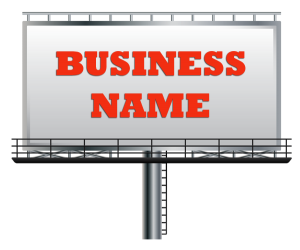Choosing A Roofing Business Name
Roofing-related company name ideas:
Roof Cleaning Business Name Ideas
Here are a number of ways (in no particular order) to help you decide on a roofing company name :
1. Create a Business Plan: With a clear business plan including your long-term goals, narrowing down your choices for a business name will be easier. Find out more about getting started on a business plan here.
2. Choose a Business Structure: Sole-proprietorships and Partnerships often are not considered legal entities, and may have less restrictions on name registration. Structures such as LLC’s and Corporations will have more requirements. More on business structures here.
3. Choose a Specialty: For example, if you have decided you will specialize in slate, then it might make sense to have the word “slate” in your business name. “Joe’s Slate Roof Repair” or “Elite Slate Roofing”. When people see your business name, there will be no doubt that not only are you a roofer, but that you specialize in slate. More on choosing a niche here.
4. Reach a Broader Audience: If you have a variety of skills, or are not sure which direction your business may go, you may not want to limit your business name to a specialty. Perhaps you are a “jack-of-all-trades” who can do construction, electrical, plumbing, gutters, siding, or more. Maybe you think in the future you might want to branch off into offering additional services. Certainly “Joe’s Slate Roof Repair” could also do bathroom renovations, but nobody would know that just looking at your name. That type of information would either have to be portrayed in your marketing materials, or else passed along by word-of-mouth. In this case, you may want to advertise more as a general contractor who mainly does roofing. You could choose a more general business name such as “Joe’s Home Services” or “Elite Contracting”.
5. Consider Your Target Audience: What type of customer is your primary target? If you are in an affluent area, a name such as “Affordable Roofing” probably won’t attract the wealthier clientele. In this case you would stick with a strong general business name, such as using your own name, or using a name that indicates quality and prestige. If you are in a lower income area, you may wish to choose a name that indicates value or affordability such as “Affordable Roofing” or “Budget Roofing”.
6. Use Your Own Name: Do you want your own name in the business name? “John Smith Roofing” “Walsh Commercial Roofing”. Using your own name adds a personal touch that may appeal to customers. You will most likely have less restrictions in registering your business name if your full name is used (“John Smith Roofing”). If just part of your name is used (“Walsh Commercial Roofing”), you may still have to file a fictitious name and/or a DBA (doing business as).
7. Use a Simple Name With A Catchy Slogan: You may also choose a simpler business name and focus on a catchy slogan that will define your business. “Your Roof Repair Expert”, “Philly’s Roofing Pro” or some other phrase can be a tagline associated with your business. While “John Smith Roofing” may not sound too fancy, a tagline associated with your business name can give you a big boost. You can see how having “John Smith Roofing– Philly’s Roofing Pro” on your business card, advertisement, or plastered on the side of your roofing vehicle may have a greater effect than just “John Smith Roofing”.
8. Choose a name near the front of the alphabet: An old-school technique for deciding on a business name would be to choose a name that would show up alphabetically near the front of the traditional phonebook. Examples for this would be “ABC Roofing” or “Apex Roofing”. This technique may not be as beneficial, as it used to be with the innovations of modern marketing strategies utilizing social media and search engines such as Google.
9. Choose a name that easy to remember: Using a short simple name may be more beneficial than a long, difficult-to-spell name.
10. Don’t just settle on any business name, thinking you can just change it later on: Obviously, you could change your name at some point down the road, but doing so could hurt your business. Previous customers may have a hard time finding you. You may miss out on referrals as your old business name is no longer used. You will have to spend time and money changing all marketing materials, your website, and branding to reflect your new name. It is better to take your time and decide on a name you will be happy with years down the road, rather than one you will be regretting a few years into your business. Not all businesses fail or struggle because they decided to change their name, but that possibility should definitely be something you should consider now, rather than later.
11. Make sure your business name is legal: After choosing your name, you will need to register with the proper institutions. You should make sure the name you are choosing isn’t trademarked, or used by someone else in the area. Registering your business name may not only be necessary on a local level such as with your city, but also with other government agencies for tax purposes.
12. Choose a good website address to complement your business name: While it would be ideal to have your business name as the actual web address (ex. WalshCommercialRoofing.com), it isn’t necessarily crucial. Other options could be “Walsh Roofing”, or some other variation not even including your name such as “DenverCommercialRoofers.com”. You could even choose a web address that reflects your specialty such as “OxfordSlatePro.com”. The key with choosing a website name is to keep it easy to remember and easy to spell. If your website is set up properly, customers will have no problem finding you, no matter what the web address is.
